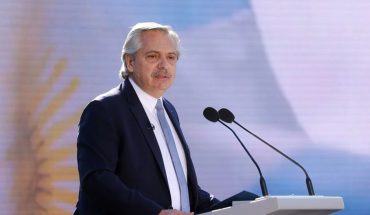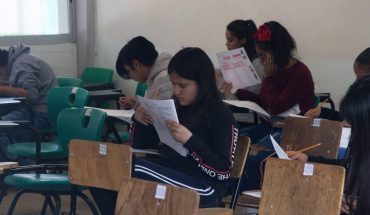GUATEMALA CITY (AP) — Erika Lorena Aifán Dávila is used to being targeted since she took over as a judge in Guatemala more than a decade ago, but in recent months the tone has increased and one day she received a text message to her cell phone : should be dead. That, however, does not frighten one of the people who for some has become the current face of the fight against corruption in Guatemala.
There is an “interest in obstructing my work, of attacking my judicial independence,” the judge told The Associated Press. irregularities and bribes from public and private offices, the fight against corruption in Guatemala was left to Guatemalan prosecutors and judges. Aiphus is one of those judges and perhaps one of the most visible. 44-year-old Aifán has a very low tone of voice, is shy and of few words. But her failures have been blunt, something that for her and others are reason enough for them to attack and threaten her. National and international organizations have expressed concern, and even the Inter-American Commission on Human Rights (IACHR) called a few weeks ago to establish measures for their protection, something that while in everyday life is already occurring, the agency considered insufficient. Since 2006, in fact, the judge has never been alone. Wherever she goes, she is always accompanied by a small group of security guards, some armed with AK-47 rifles. In recent months, the judiciary also gave him an armored vehicle.” Judge Erika Aifán is one of the main faces of the fight against corruption,” Adriana Beltran, director for Citizen Security at the Washington Office for Latin America (WOLA) organization, told AP. “She has had in recent years the highest-level cases.” The IACHR noted that while the court receives protection from the judicial body, the pressures against it have “their origin precisely in certain persons belonging to state institutions, without the implementation of more concrete measures to reduce the climate of hostility against the beneficiary proposal, such as publicly reaffirming the legitimacy of its work and demanding respect for its integrity at all times.” Until before the International Commission against Impunity in Guatemala (CICIG) ceased operating in September, several of the agency’s investigations were analyzed by Judge Aifán and, after being resolved, employers, politicians and individuals ended up in prison. But the most emblematic issue he has had to review and, for which he believes the pressures and attacks against him have increased, is the so-called “Phoenix” case: an investigation made public in April this year and which uncovered how entrepreneurs and individuals allied theself in an op money laundering obtained through a scam for about $50 million to the Guatemalan Institute of Social Security.According to research, the mastermind of the operation was businessman Gustavo Adolfo Herrera Castillo, helped by his son Sergio Sergio Alfredo Herrera Acevedo, among others. Herrera Castillo, who is on the run, is a businessman accused of having sold land to Guatemala’s Social Security system through companies facade and overprice, which ended in embezzlement to the government. His son was arrested and prosecuted in a Guatemalan prison. Guatemala’s presence of CICIG allowed the dismantling of dozens of corruption networks involving officials, legislators, judges and entrepreneurs at different levels. The commission brought to trial three former presidents, including General Otto Pérez Molida, who in 2015 resigned from his post. But the agency’s work could not be explained without the support of Guatemalan officials and judges willing to face the pressures, such as Aifán, who now carry the full weight of investigations. Since the “Phoenix” case came into her hands, the judge said, increased social media attacks, messages on her phone and even reported that she discovered that two employees of her court shared reserved information from that court and other investigations with lawyers. He claimed that both removed part of the file from the “Phoenix” case, in particular some leaflets in which other courts ordered him to carry out measures on behalf of the defendants. And because he has not been able to apply them in the absence of the documents, Aifán says that there is now a risk that some involved, such as Herrera’s son, will be released. Beltran, of WOLA and who has followed Aiyn’s professional history, felt that the judge suffers from a “harassment” that in his opinion seeks an end to the investigations. “The intention is to recapture the institutions of the state and maintain the status quo, in order to seek impunity,” he said. Faced with dozens of files placed on shelves, tables and the floor, which floodhis his small office about four by four meters, Aifán spoke about the challenges he faces and his conviction to continue his work of combating corruption.” I’m not leaving the country,” he said. “At the moment I have no contemplate.” He admitted that he is sometimes afraid of it, but said he knows perfectly well the risks he takes in his profession. For the time being, he hopes that the judiciary and the government will abide by the measures granted by the IACHR and protect not only his life, but that of his family. Aifán explained that the pressures against him for the “Phoenix” case have even come from the judiciary itself. One of the prosecutors involved in the investigation, Cinthia Monterroso, denounced her on the grounds that she was pressing her. However, the prosecution to which Monterroso belongs decided to separate her, rather than ask the judge to remove the case. The judge commented that there have been times when she feels guarded at the gates of her own home. He recounted that on one occasion a car was parked for almost two hours in front of the entrance of his home and he withdrew until his guard approached. She also said she felt spied on to talk on the phone.” One day they sent me a message saying I should be dead, just like my family,” she said. He noted that he has had to reschedule hearings in cases where there are people deprived of his liberty because of the obligation to report on employee complaints.
It is clear to Aifán that there is an interest of power groups to prevent them from continuing corruption investigations, although he also believes that someone should do that work.
“I have always thought that someone has to do things. We can’t, all our lives, be leaving the country, in fear,” he said. “It’s what criminal structures are looking for.” The construction of a rule of law, he said, is about respecting the authorities and judicial decisions.” One of the purposes of the law is to maintain harmony and social peace, but if this is not fulfilled, no citizen will never have security and peace in this country,” he said.





